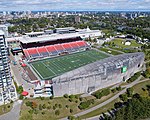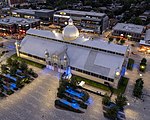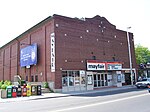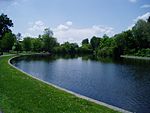TD Place Arena

TD Place Arena, originally the Ottawa Civic Centre, is an indoor arena located in Ottawa, Ontario, Canada, seating 9,500. With temporary seating and standing room it can hold 10,585. Opened in December 1967, it is used primarily for sports, including curling, figure skating, ice hockey and lacrosse. The arena has hosted Canadian and world championships in figure skating and ice hockey, including the first women's world ice hockey championship in 1990. Canadian championships in curling have also been hosted at the arena. It is also used for concerts and conventions such as Ottawa SuperEX. The arena is the home of the Ottawa 67's of the Ontario Hockey League (OHL). It was the former home of the Ottawa Senators of the National Hockey League (NHL) from 1992 through 1995, the Ottawa Nationals of the World Hockey Association (WHA) from 1972 to 1973 and the Ottawa Civics of the WHA in 1976, and the Ottawa Rebel of the National Lacrosse League from 2002 to 2003. Canadian Prime Ministers Pierre Trudeau, John Turner, Brian Mulroney and Kim Campbell were elected party leaders here.
Excerpt from the Wikipedia article TD Place Arena (License: CC BY-SA 3.0, Authors, Images).TD Place Arena
Bank Street, (Old) Ottawa Capital
Geographical coordinates (GPS) Address Nearby Places Show on map
Geographical coordinates (GPS)
| Latitude | Longitude |
|---|---|
| N 45.398886111111 ° | E -75.684122222222 ° |
Address
Bank Street 945
K1S 5A7 (Old) Ottawa, Capital
Ontario, Canada
Open on Google Maps









